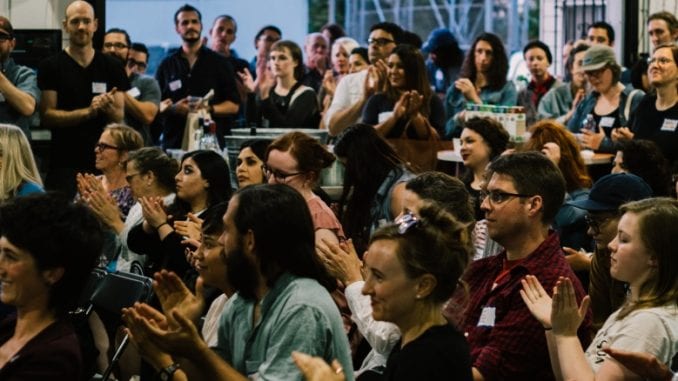
The Coffeewoman comes to Berkeley, where leaders from all corners of the industry joining together to discuss leadership, intersectionality, and the future of coffee.
BY ASHLEY RODRIGUEZ
BARISTA MAGAZINE ONLINE
Cover photo by Ghostfotographics
Over 200 coffee professionals crowded the room at the Coffeewoman, which took place at Bay Area CoRoasters in Berkeley, Calif., on Friday, June 2. “Founded by Laila Ghambari and Tracy Ging, the Coffeewoman had its first event in February 2016 in Kansas City, Mo., as a grassroots gathering to discuss pertinent issues facing women, POC, gender nonconforming folks, and non-cis baristas, retailers, and other coffee professionals,” shares Sarah Allen, Barista Magazine editor and one of the organizers of the event. Along with support from Barista Magazine and CoRo, Pacific Foods also sponsored the night of drinks, mingling, and important—and sometimes uncomfortable—conversations and discourse. Attendance was free of charge but patrons were encouraged to donate $5 to the Planned Parenthood Action Fund.
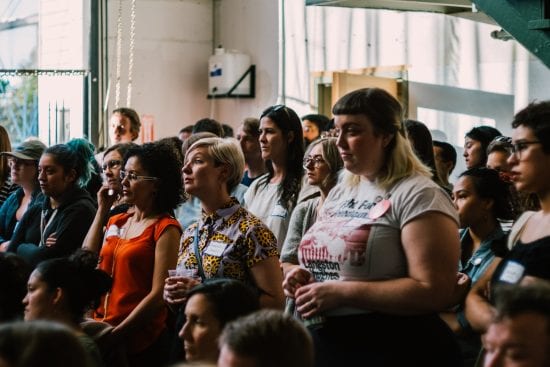
As attendees arrived, they were greeted with free tote bags, coffee from Burundi that was sourced through the IWCA, local wine and beer, and food catered by Bartavelle Café & Wine Bar. Helen Russell, co-founder of Equator Coffees and Teas, gave a keynote speech where she talked about her personal experiences creating a business out of her garage and building up her employees. Equator was recently recognized as the Small Business Administration’s 2016 Small Business of the Year and is the first LGBTQ company to be awarded this prestigious prize. Helen talked about the farm Equator co-owns, Finca Sophia, and the accomplishments of her staff, including Talya Strader, who placed third at the 2017 United States Barista Championship.
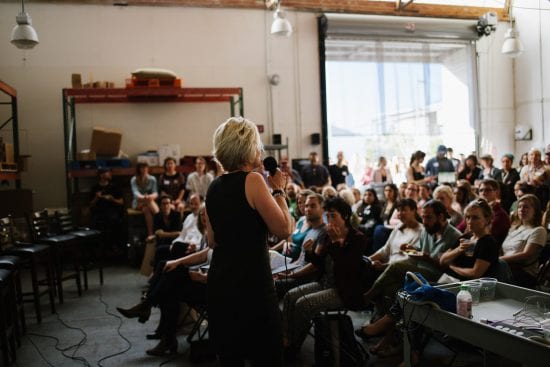
After Helen’s speech, Sarah Allen hosted a panel called ‘How Did I Get Here?’ asking female leaders to discuss their pathways and pitfalls to success. The panel included Kristen Nelson, owner and founder of Modern Coffee, Amanda Juris, green coffee buyer for Verve Coffee Roasters, Elizabeth Goldblatt, co-founder of Six Degrees Coffee, Sarah Richmond, director of operations at CoRo, and Siobhan Gottleib, quality control manager for Genuine Origin.
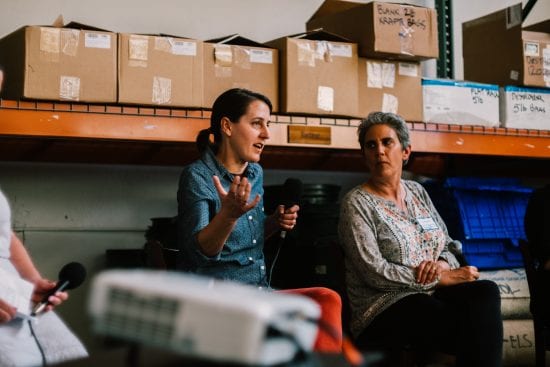
Sarah asked the panel to speak about their coffee histories, some of the qualities that have made them successful, and how they achieved their goals. “I always had a clear goal [move to Switzerland], and even though my goal wasn’t what I ended up doing, having a goal helped define my career path,” shared Amanda. Along with panelists providing insights from their personal experiences, the audience was encouraged to ask questions and engage in debate with the panelists.
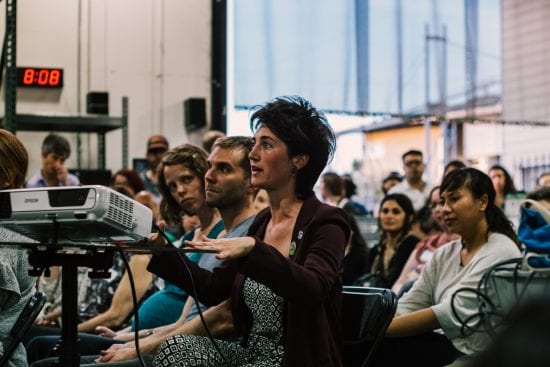
After the career panel, I was honored to host a panel called ‘Intersectionality in the Workplace,’ where panelists focused on how their varying identities affect their workspaces. The panel included RJ Joseph, roaster for Counter Culture Coffee and writer for Barista Magazine and the blog Queer Cup, Elise Hogan, COO of Wrecking Ball Coffee Roasters, Maria Cleaveland, regional sales director for Urnex Brands, Rosi Quiñones, certification specialist for Royal Coffee, and a last-minute addition of Paba Mihindukulasuriya, roaster for Alchemy Collective. The panel dove deep and talked about the panelists’ personal definitions of intersectionality, how they have been marginalized in their workspaces, and their responsibility as leaders in their industry to reach out and provide support for baristas with less power and fewer options.
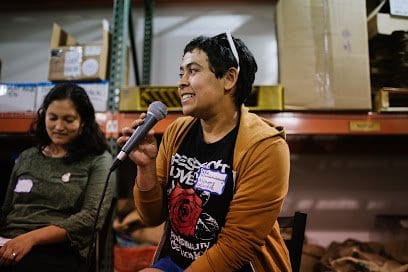
“I’d like to get your contact information so you and I can talk about your experiences,” RJ said to a person in the audience who expressed feeling marginalized for having an accent. Members of the intersectionality panel brought up problems and barriers that many baristas face, and how systemic change is necessary for the success and growth of the coffee industry for all people.
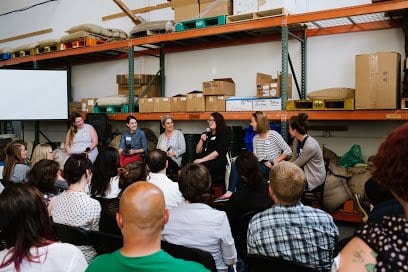
The Coffeewoman has taken place in a number of cities, and this iteration of the event was livestreamed on the Bay Area Coffee Community’s Facebook page. Additionally, the audio from each panel plus Helen’s keynote speech will be available on the Boss Barista podcast in the coming weeks.

